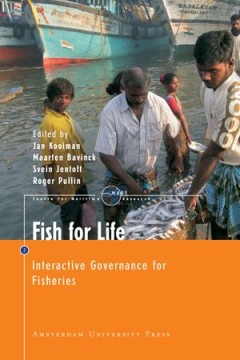Filter by

How Welfare States Care
A social revolution has taken place in Europe. Women's employment patterns changed drastically the last decades. But they are still different across Europe. Welfare state scholars often presume that diversity and change in women's employment across Europe is based on financial (dis) incentive structures embedded in welfare states. This book shows, by in depth analyses of women's (and men's) emp…
- Edition
- -
- ISBN/ISSN
- 9789053569757
- Collation
- -
- Series Title
- -
- Call Number
- -

Gender, Generations and the Family in International Migration
Family-related migration is moving to the centre of political debates on migration, integration and multiculturalism in Europe. It is also more and more leading to lively academic interest in the family dimensions of international migration. At the same time, strands of research on family migrations and migrant families remain separate from - and sometimes ignorant of - each other. This volume …
- Edition
- -
- ISBN/ISSN
- 9789089642851
- Collation
- -
- Series Title
- -
- Call Number
- -

From the Manpower Revolution to the Activation Paradigm
This book examines the origins and evolution of labor market policy in Western Europe, while paying close attention to the oeCD and the European Union as proliferators of new ideas. Three phases are identified: (a) a manpower revolution phase during the 1960s and 1970s, when most European governments emulated Swedish manpower policies and introduced/modernized their public employment services; …
- Edition
- -
- ISBN/ISSN
- 9789089642523
- Collation
- -
- Series Title
- -
- Call Number
- -

Framing Immigrant Integration
Debates on immigrant integration are often caught up in what academics and politicians like to call 'national models of integration'. Researchers and policymakers long for common ground. In the Netherlands, their symbiosis is fed by multiculturalism, something for which Dutch society has long been seen as exemplary. Still, the incorporation of migrants remains one of the country's most pressing…
- Edition
- -
- ISBN/ISSN
- 9789089642844
- Collation
- -
- Series Title
- -
- Call Number
- -

Fish for Life
One billion people around the world rely upon fish as their primary-and in many cases, their only-source of protein. At the same time, increasing demand from wealthier populations in the U.S. and Europe encourages dangerous overfishing practices along coastal waters. Fish for Life addresses the problem of overfishing at local, national, and global levels as part of a comprehensive governance ap…
- Edition
- -
- ISBN/ISSN
- 9789053566862
- Collation
- -
- Series Title
- -
- Call Number
- -

The European Union, Turkey and Islam
Does the fact that the majority of Turkey's population is Muslim form a hindrance to its EU membership? According to a recent policy advice by the Netherlands Scientific Council for Government Policy (WRR), the answer is an adamant 'no'. Why is this issue of Turkish Islam relevant? After all, Turkey should not be judged by standards other than the Copenhagen criteria. The answer is that the pub…
- Edition
- -
- ISBN/ISSN
- 9789053567128
- Collation
- -
- Series Title
- -
- Call Number
- -

Dynamism in Islamic Activism
The increased tensions surrounding radical Muslims and radical movements in the political Islam are not only manifested in the Western countries but also in the Muslim world itself. Tendencies and political movements that undermine the status quo have proliferated since the 1970s. They plead for a far-reaching islamization: funding politics, law and society on Islamic foundations. This study of…
- Edition
- -
- ISBN/ISSN
- 9789053569184
- Collation
- -
- Series Title
- -
- Call Number
- -

Dynamics of Power in Dutch Integration Politics
Integration politics in the Netherlands has changed dramatically between 1990 and 2005. Whereas ethnic and religious differences were hitherto pacified through accommodation, a new and increasingly powerful current in Dutch politics problematized the presence of minorities. This development represents a challenge to sociologists and political scientists: how to map and explain drastic changes? …
- Edition
- -
- ISBN/ISSN
- 9789089644060
- Collation
- -
- Series Title
- -
- Call Number
- -

Dynamics of Power in Dutch Integration Politics
Integration politics in the Netherlands has changed dramatically between 1990 and 2005. Whereas ethnic and religious differences were hitherto pacified through accommodation, a new and increasingly powerful current in Dutch politics problematized the presence of minorities. This development represents a challenge to sociologists and political scientists: how to map and explain drastic changes? …
- Edition
- -
- ISBN/ISSN
- 9789089644060
- Collation
- -
- Series Title
- -
- Call Number
- -

The Trump Presidency, Journalism, and Democracy
This book examines the disruptive nature of Trump news – both the news his administration makes and the coverage of it – related to dominant paradigms and ideologies of U.S. journalism. By relying on conceptualizations of media memory and "othering" through news coverage that enhances socio-conservative positions on issues such as immigration, the book positions this moment in a time of con…
- Edition
- -
- ISBN/ISSN
- 9781351392020
- Collation
- -
- Series Title
- -
- Call Number
- 070.449304 TRU t
 Computer Science, Information & General Works
Computer Science, Information & General Works  Philosophy & Psychology
Philosophy & Psychology  Religion
Religion  Social Sciences
Social Sciences  Language
Language  Pure Science
Pure Science  Applied Sciences
Applied Sciences  Art & Recreation
Art & Recreation  Literature
Literature  History & Geography
History & Geography